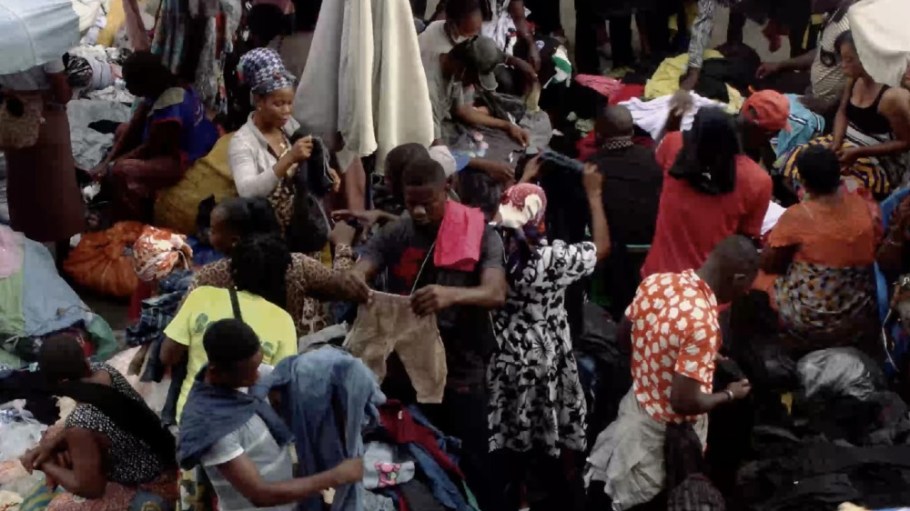adverts
An environmental advocacy group is calling on the government to impose a ban on the importation of second-hand clothing, often referred to as “foss,” “broni wawu,” or “bend-down boutique,” and other textile waste from the Global North.
The group warns that these imports pose significant risks to both the environment and public health.
Speaking at the launch of the report “Fast Fashion, Slow Poison: The Toxic Textile Crisis in Ghana,” Hellen Kahaso Dena, Project Lead of the Pan-African Plastics Project, raised concerns about the hazardous chemicals found in much of the imported textile waste.
adverts
She emphasised that these substances can contaminate the country’s soil and water, damage ecosystems, and endanger public health.
“Ghana is becoming overwhelmed by fast fashion waste,” said Dena at the event organised by Greenpeace Africa in Accra.
She urged authorities to swiftly ban the import of unusable clothing while simultaneously promoting the growth of a sustainable local textile industry.
Dena explained that a large portion of the so-called “used” clothing imported into Ghana is actually unsellable waste.
These items are often misclassified to avoid stringent international waste regulations, resulting in African countries becoming dumping grounds for unwanted textiles from Europe.
“We are pushing for a law that ensures only usable and resellable clothing enters our country,” she added, advocating for government intervention to curb this growing problem.
In addition, Dena called for the introduction of the ‘Polluter Pays Principle,’ which would require countries in the Global North to take responsibility for the environmental impact caused by their textile waste exports.
Mr. Sam Quashie-Idun, Head of Investigations at Greenpeace Africa, supported Dena’s call to action, revealing shocking figures about the second-hand clothing trade.
He reported that approximately 7.5 million articles of second-hand clothing arrive at Accra’s Kantamanto Market every week. Of these, around half are poor-quality, synthetic items.
Market vendors estimate that up to 60% of these imports are unsellable and end up being burnt or illegally dumped, creating further environmental hazards.
“Our environment, our water bodies, and our communities are suffering,” Quashie-Idun remarked, emphasising the need for urgent government intervention to stop what he described as “waste colonialism.”
The group is advocating for global legislative efforts to address the issue of textile waste, urging authorities to adopt measures similar to those being used in the fight against plastic pollution.
They argue that stronger regulations will help mitigate the harmful effects of second-hand clothing imports on Ghana’s environment and public health.


